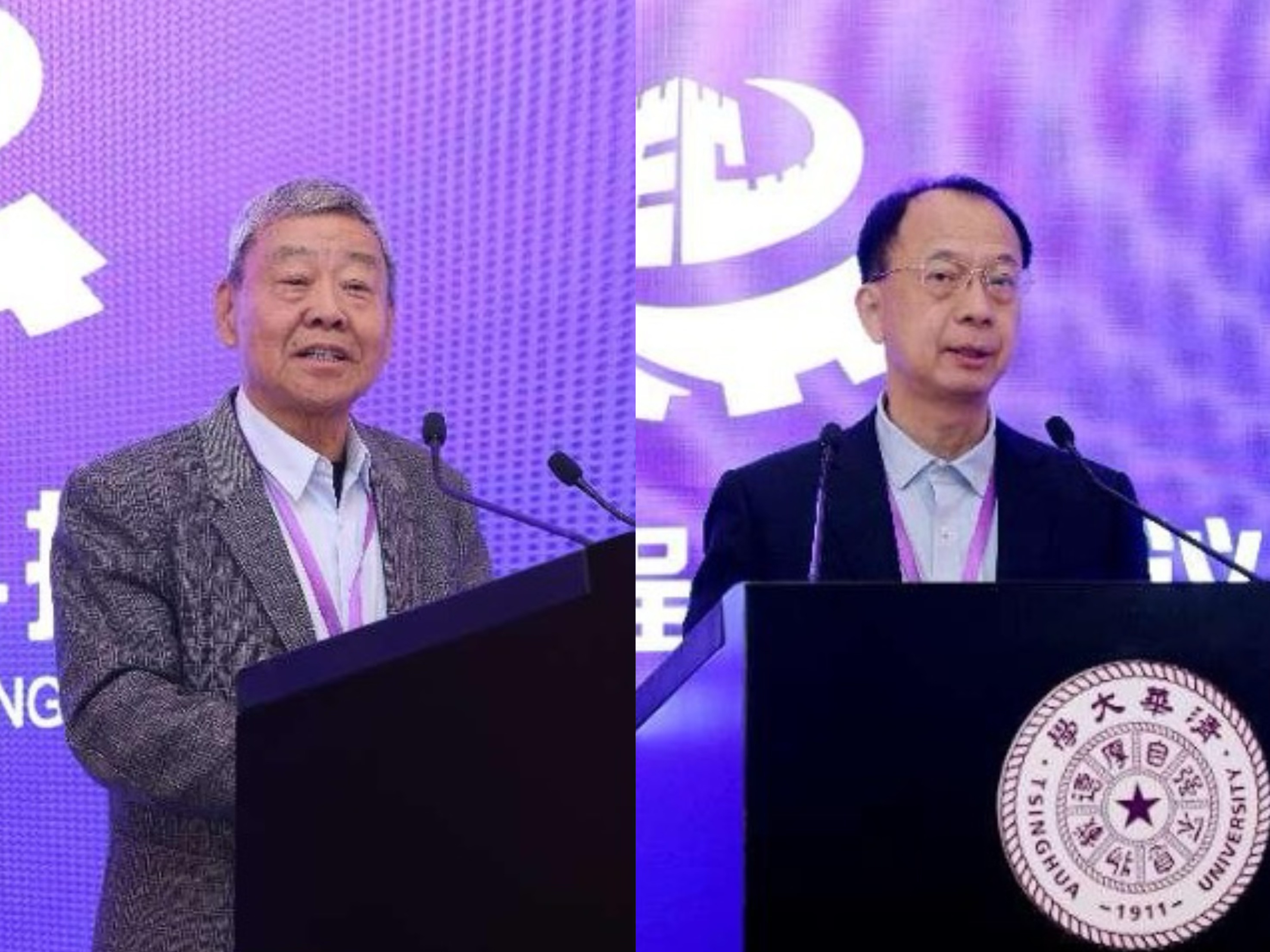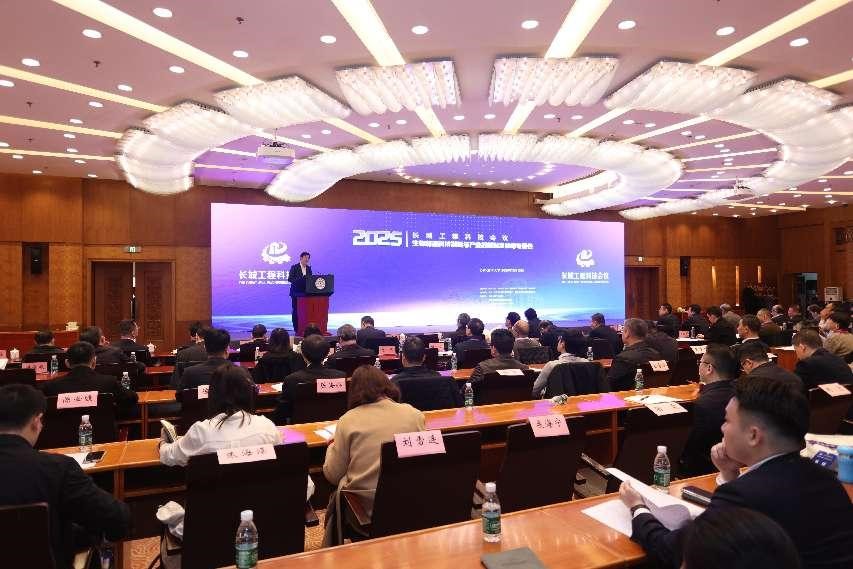

近日,金宇保灵生物药品有限公司、北京合生基因科技有限公司正式收到中国农业农村部颁发的猫传染性腹膜炎(FIP)mRNA疫苗兽用生物制品临床试验批件(批件号:2025062)。这一成果不仅标志着中国在宠物RNA原创药物研发领域的全球领先地位,更凸显了清华大学谢震教授从自动化工程跨界生物医学的重要贡献,他领导的研究团队建立了较为完整的宠物RNA药物研发体系,为“猫界绝症”带来曙光。
此次临床试验件的获得,得益于清华大学谢震教授团队与两家生物科技公司的紧密协作。据北京合生基因科技有限公司刘淦博士介绍,“在公司首席科学官谢震教授的指导下,我们组建了一支跨学科研发团队,团队紧密协作,充分融合生物技术(BT, Biotechnology)与信息技术(IT, Information Technology),在疫苗设计策略、序列建模及功能验证等关键环节持续攻关,显著提升了疫苗的靶向性与稳定性,为顺利开展临床试验奠定了坚实基础。”在抗原设计阶段,研发团队深入研究了FIPV病毒的感染与免疫机制,利用谢震教授团队自主研发的RNA序列人工智能模型,对mRNA疫苗进行了序列优化,并通过动物免疫攻毒实验锁定了病毒核心靶点。此外,谢震教授与两家生物科技公司密切合作,实现了mRNA生产原料和递送系统的国产化替代,大幅降低生产成本,推动该产品从实验室向临床应用的转化,有望将全球首个猫传染性腹膜炎mRNA疫苗产品推向国内外市场,助力中国跻身掌握该核心技术的少数动物保健品国家行列。


谢震教授是医学合成生物学领域的领先专家,他将控制理论、信息技术与生物医学相结合,重点聚焦在人工生物元件、线路设计优化,开发可编程的基因药物,用于肿瘤治疗和传染病防治。在RNA疫苗的开发方面,谢教授带领团队取得了重要突破,尤其在宠物医疗领域的应用上填补了全球空白。这一科研成果的取得,离不开扎实的科学理论支持和前沿的技术应用。谢震教授主编的《医学合成生物学》一书,系统介绍了合成生物学在医学中的发展和应用,是了解该领域未来发展不可或缺的宝贵学术资料。该书从理论基础到前沿技术,全面阐述了医学合成生物学的发展脉络与应用前景,对于科研人员、临床医生及对生物技术感兴趣的读者,都是一份重要参考。强烈推荐大家阅读这本书,谢震教授带您深入了解医学合成生物学的广泛应用和前景。


信息来源:GutSir
RUNZE MAO
Assistant Professor
Aug. 2024–present, Assistant professor | Tsinghua University, CHINA
Jan. 2021–Jun. 2024, Postdoc. | California Institute of Technology, USA Jan.
Advisor: Prof. Frances H. Arnold
Oct. 2020–Dec. 2020, Postdoc. | Swiss Federal Institute of Technology, Lausanne, Switzerland
Advisor: Prof. Xile Hu
Jul. 2016–Sep. 2020, Ph.D. | Chemistry | Swiss Federal Institute of Technology, Lausanne, Switzerland
Advisor: Prof. Xile Hu | Doctoral Program Thesis Distinction
Sep. 2013–Jul. 2016, M.S. | Chemical Biology | Peking University, China
Advisor: Prof. Xin-Shan Ye | Graduate Excellence Award
Sep. 2009–Jul. 2013, B.S. | Chemistry | Henan Normal University, China
Advisors: Profs. Gui-Rong Qu & Hai-Ming Guo | Undergraduate Excellence Award
Selected Publications
1. Liang, L.; Wang, Y. H.; Cui, C. X.; Deng, X. S.; Wang, S. L.; Guo, H. M.; Li, Y.; Niu, H. Y.; Mao, R.* NADH AnaloguesEnable Metal- and Light-Free Decarboxylative Functionalization. Angew. Chem. Int. Ed. 2024, e20241513
2. Mao, R.; Gao, S.; Qin, Z.; Wu, S. J.; Li, Z. Q. Arnold, F. H. Biocatalytic, Enantioenriched Primary Amination ofTertiary C–H Bonds. Nat. Catalysis. 2024, 7, 585.
3. Mao, R.; Arnold, F. H. An Engineered Enzyme Enables Stereoconvergent Alkylation of Alkene Mixtures. Nat.Synth. 2024, 3, 160.
4. Mao, R.; Taylor, D. M.; Wackelin, D. J.; Wu, S. J.; Sicinski, K. M.; Arnold, F. H. Biocatalytic, StereoconvergentAlkylation of (Z/E)-Trisubstituted Silyl Enol Ethers. Nat. Synth. 2024, 3, 256.
5. †Wackelin, D. J.; †Mao, R. (共同⼀作); Sicinski, K. M.; Zhao, Y.; Chen, K.; Arnold, F. H. Enzymatic Assembly ofDiverse Lactone Structures: An Intramolecular C–H Functionalization Strategy. J. Am. Chem. Soc. 2024, 146,1580. (†同等贡献).
6. Mao, R.; Wackelin, D. J.; Jamieson, C. S.; Rogge, T.; Gao, S.; Das, A.; Taylor, D. M.; Houk, K. N.; Arnold, F. H.Enantio- and Diastereoenriched Enzymatic Synthesis of 1,2,3-Polysubstituted Cyclopropanes from (Z/E)-Trisubstituted Enol Acetates. J. Am. Chem. Soc. 2023, 145, 16176.
7. Mao, R.; Bera, S.; Turla, A. C.; Hu, X. Copper-Catalyzed Intermolecular Functionalization of Unactivated C(sp3)– H Bonds and Aliphatic Carboxylic Acids. J. Am. Chem. Soc. 2021, 143, 14667.
8. †Bera, S.; †Mao, R. (共同⼀作); Hu, X. Enantioselective C(sp3)–C(sp3) Cross-Coupling of Non-Activated AlkylElectrophiles via Nickel Hydride Catalysis. Nat. Chem. 2021, 13, 270. (†同等贡献).
9. Mao, R.; Bera, S.; Cheseaux, A.; Hu, X. Deoxygenative Trifluoromethylthiolation of Carboxylic Acids. Chem. Sci.2019, 10, 9555.
10. Mao, R.; Balon, J.; Hu, X. Decarboxylative C(sp3)–O Cross-Coupling. Angew. Chem., Int. Ed. 2018, 57, 13624.
Email: This email address is being protected from spambots. You need JavaScript enabled to view it.
Assistant Professor
Education
2005-2010, Ph.D. in chemical biology, Central China Normal University
2001-2005, B.S. in applied chemistry, Central China Normal University
Professional Experience
Oct 2012-present, Lecturer and Associate Professor, Graduate School at Shenzhen,Tsinghua University
Oct 2016-Oct 2017, Visiting Scholar, National University of Singapore
Jul 2010-Jul 2012, Postdoctoral Fellow, Guangdong Provincial Key Laboratory of Chemical Biology, Graduate School at Shenzhen, Tsinghua University
Research Interest
l Drug development systems based on synthetic biology, cellular phenotypes and biological orthogonality.
l Non-invasive, highly sensitive, and highly specific disease diagnostic systems and devices.
l Novel artificial intelligence algorithms developed and applied to multi-omics research, disease diagnosis, and drug design.
2021 Excellent Teacher of Shenzhen;
Third prize in the 9th Tsinghua University Young Teachers Teaching Competition;
Excellent Master thesis advisor of Tsinghua University
Selected Publications
This email address is being protected from spambots. You need JavaScript enabled to view it.
FEIRAN LI
Assistant Professor, PhD supervisor
Tsinghua University, Tsinghua Shenzhen International Graduate School, Institute of biopharmaceutical and health engineering
2023-present, Assistant Professor, Tsinghua Shenzhen International Graduate School, China
2021-2023, PostDoc, Chalmers University of Technology, Sweden (Advisor: Prof. Jens Nielsen)
2017-2021, Ph.D. in Systems Biology, Chalmers University, Sweden (Supervisor: Prof. Jens Nielsen)
2014-2017, M.S. in Biochemical Engineering, Tianjin University, China (Supervisor: Prof. Zhao Xueming)
2010-2014, B.S. in Chemical Biology, Tianjin Normal University, China
Research Interest
Our group is dedicated to tackling fundamental challenges in modeling biological systems by integrating computational approaches (with a strong emphasis) and experimental techniques. This combined strategy enables deeper insights into biological mechanisms and facilitates molecular discoveries. Our research is situated at the intersection of systems biology, data science, machine learning, and metabolic modeling.
Our long-term objectives are to:
1. MIT Technology Review "35 Innovators Under 35" China (2023)
2. National Overseas High-Level Talents (Youth) Project (2023)
3. "Pengcheng Peacock Plan" Specially Recruited Positions Category B Talent, (2023)
4. Chinese Government Award for Outstanding Self-Financed Students Abroad – Postdoctoral Researcher (2022)
Selected Publications
# Co-first author, * Corresponding author
Others:
Google scholar:https://scholar.google.com/citations?user=Zn6Gy-IAAAAJ&hl=en
ORCID: https://orcid.org/0000-0001-9155-5260
Tsinghua Shenzhen International Graduate School, Phase I, 16F, A1603
CANYANG ZHANG
2024.01至今 Associate Professor, Shenzhen International Graduate School, Tsinghua University, China
2021.05-2023.12 Assistant Professor, Shenzhen International Graduate School, Tsinghua University, China
2019.06-2020.12 Postdoctoral Research Associate, Singapore-MIT Alliance for Research and Technology, Singapore
2016.08-2019.05 Postdoctoral Research Associate/Research Associate, Washington State University, USA
2015.03-2016.07 Assistant Professor, National Center for Nanoscience and Technology, China University, China
2012.10-2013.10 Visiting Ph.D. in Biopharmaceutical Biotechnology, Ludwig-Maximilians-Universität München, Germany
2009.09-2014.12 Ph.D. in Chemical Engineering, South China University of Technology, China
Research Interest:
Overview: my research is focused on the design and preparation of biological hybrid system basing on the understanding of relationship between non-bioparts (artificial system, such as macromolecules, nanoparticle, microneedle) and bioparts (living cells/bacteria) for function improvement to treat diseases.
Tsinghua University Annual Teaching Excellence Award (2023)
Selected Publications:
E-mail: This email address is being protected from spambots. You need JavaScript enabled to view it.
Phone(M):+86 135 2206 7013; Phone(O):+86 0755 2640 1402
Office Address: International Phage I 1602, Shenzhen International Graduate School, University Tow,
Nanshan District, Shenzhen 518055 P.R. China
Personal Website: https://www.sigs.tsinghua.edu.cn/zcy_en/main.htm
Lab Website: https://zhanglab.sigs.tsinghua.edu.cn/
Working Experience:
02/2022 – present Assistant Professor, Tsinghua University
10/2018 – 10/2021 Postdoctoral Research Fellow, The University of Hong Kong
03/2018 – 9/2018 Research Assistant,The University of Hong Kong
Education :
01/2014 – 06/2018 : Doctor of Philosophy (Bioinorganic Chemistry), The University of Hong Kong,
Supervisor: Prof. SUN, Hongzhe
Co-supervisor: Dr. Richard KAO, Yi-Tsun
Research Interest:
His research focuses on interdisciplinary studies in metallochemical biology, synthetic biology, synthetic chemistry, and computational biology. Centered on the multi-scale exploration of biological resources and the metallization activity modification of biomolecules, he designs innovative cross-species metalloprotein/peptide element libraries, develops data-driven platforms for metalloprotein/peptide design and directed evolution, and customizes functionalized metal-based drugs and chronic disease prevention products for anti-infection, anti-tumor, and anti-fibrosis applications.
Royal Society of Chemistry Books Awards at ASBIC8, 2016
Selected Publications:
1. Wang R#, Lai TP#, Gao P#, Zhang H#, Ho PL, Woo PC, Ma G, Kao RYT, Li H, Sun H*. “Bismuth antimicrobial drugs serve as broad-spectrum metallo-β-lactamase inhibitors” Nat. Commum., 2018, 9, 439.
2. Sun H#*, Zhang Q#, Wang R#*(Co-first author and Co-corresponding author), Wang H, Wong YT, Wang M, Hao Q, Yan A, Kao YT, Ho PL, Li H, “Resensitizing superbugs carrying both blaMBL and mcr genes to antibiotics by auranofin” Nat. Commum., 2020, 11, 5263.
3. Yuan S#, Wang R#(Co-first author), Chan FW#, Zhang J, Cheng T, Chik KH, Ye Z-W, Wang S, Jin L, Li H, Jin DY, Yuen KY*, Sun H*, “Metallodrug ranitidine bismuth citrate suppresses SARS-CoV-2 replication and relieves virus-associated pneumonia in Syrian hamsters” Nat. Microbiol, 2020, 5, 1439–1448.
4. Cheng H, Huang S, Cai L., Xu Y, Wang R*, Zhang Y.*., “Focus Your Attention: Multiple Instance Learning with Attention Modification for Whole Slide Pathological Image Classification.” IEEE Transactions on Circuits and Systems for Video Technology. 2025, DOI: 10.1109/TCSVT.2025.3528625.
5. Zhang Q#, Wang R#(Co-first author), Wang M, Liu C, Koohi-Moghadam M, Wang H, Ho P-L, Li H, Sun H*, Proc. Natl. Acad. Sci. U.S.A., 2022, 119, e2119417119.
E-mail:This email address is being protected from spambots. You need JavaScript enabled to view it.
Institute of Biomedical and Health Engineering, Tsinghua University Shenzhen International Graduate School
2005–2009: Bachelor of Engineering in Polymer Materials and Engineering, Sun Yat-sen University, China (Advisor: Chen Xudong)
Research Interest:
Organoid synthetic biomanufacturing technology and applications
Gold Medal at the Geneva International Invention Exhibition (Special Edition), awarded by the World Intellectual Property Organization (WIPO). Rank 1/7 (Ma Shaohua; Zhao Haoran; Cai Yongde; Li Jianan; Li Jiawei; Cao Yuanxiong; Yang Haowei) (2022).
Selected Publications:
Contact Information







3月13日,长城工程科技会议生物制造科技创新与产业创新融合战略专题会在清华大学召开。会议聚焦生物制造科技创新与产业创新融合战略,围绕产研融合策略、关键技术研发方向、产业核心瓶颈、“十五五”布局建议、国际合作路径等议题展开深入研讨。清华大学校长、中国科学院院士李路明等出席会议并致辞。中国科学院院士饶子和,北京化工大学校长、中国工程院院士谭天伟,中国科学院院士时松海担任会议主席。清华大学生命科学学院、化工系教授,清华大学合成与系统生物学中心主任陈国强担任会议执行主席。
李路明代表清华大学向与会嘉宾表示欢迎,并指出,清华大学高度重视生物制造领域的学科布局,2015年前瞻性组建合成与系统生物学中心,构建起横跨七个院系的交叉创新体系,支持一批优秀的生物制造专家学者,产生了一系列具有影响力的研究成果。2025年政府工作报告对培育生物制造等未来产业提出了更高要求,推动合成生物学等前沿科技领域的创新发展成为发展新质生产力的重要举措。希望与会专家学者通过本次会议汇聚真知灼见,共同为推动相关学科建设和我国生物制造产业高质量发展贡献智慧和力量。

饶子和(左)、陈国强(右)致辞
饶子和在致辞中表示,当前全球生物制造产业正处于技术突破与产业变革的关键时期。期待以本次会议为纽带,搭建跨学科、跨领域的协同创新平台,加速生物制造领域的成果转化,共同打造“从核心菌种到生产工艺、从高端装备到生物制造产品”的全链条创新范式。
陈国强代表会议主席团致谢学界泰斗、产业领袖和政策专家汇聚一堂,共同探讨生物制造的创新蓝图,推动科技与产业的深度融合,为中国乃至全球的绿色发展贡献智慧与力量。
中国科学院院士、中国科学院动物研究所研究员康乐,中国科学院院士、肝肿瘤外科学家、复旦大学教授樊嘉,中国科学院院士、中国科学院过程工程研究所研究员马光辉,中国工程院院士、北京化工大学校长谭天伟,深圳理工大学合成生物学院院长张先恩,清华大学合成与系统生物学中心主任陈国强,北京分子之心科技有限公司董事长许锦波,清华大学自动化系教授汪小我等专家学者作主旨报告。

会议现场
本次会议是贯彻落实党的二十大精神、践行“双碳”目标和绿色发展战略的重要举措,也是推动合成生物学、代谢工程等核心技术突破,助力我国生物制造产业抢占国际竞争制高点的关键行动。会议旨在推动生物制造科技与产业深度融合,助力生物制造产业迈向国际前沿,实现可持续和安全发展。来自科技部、工信部、国家发改委、国务院国资委、农业农村部、北京市科协等单位,来自中国科学院、复旦大学、天津大学、深圳理工大学、中国农业科学院等高校科研院所,相关部门、学术界和企业界的一百多位专家学者出席会议并进行深入交流。
供稿:科研院
2007.08-2011.07 B.S., Chemical Engineering, Tsinghua University
2011.09-2018.09 Ph.D., Chemical Engineering, University of California, Los Angeles, USA
2018.10-2024.12 Postdoc, Max Planck Institute for Terrestrial Microbiology, Germany
2025.03-Present Assistant Professor, School of Environment, Tsinghua University
Research Interest
Her research focuses on building artificial biological systems for efficient CO₂ fixation and conversion. Specifically, she aims to build artificial photosynthesis from the bottom up using an interdisciplinary approach that integrates synthetic biology, biochemistry, and electrochemistry. Her main research interests include:
1. Designing and constructing new-to-nature CO₂ fixation pathways;
2. Developing energy conversion modules to power biological systems sustainably;
3. Integrating biological systems with electrochemical processes.
2023 Innovators Under 35 China (TR35 China), MIT Technology Review
2024 Microbes 4 Climate Explorer Award, Center for Synthetic Microbiology (SYNMIKRO), Marburg, Germany
Selected Publications
(* denotes first authorship # denotes corresponding authorship)
1. Luo S*#, Diehl C, He H, Bae YJ, Klose M, Claus P, Cortina NS, Fernandez CA, Schulz-Mirbach H, McLean R, Rojas AAR, Schindler D, Paczia N, Erb TJ# (2023) Construction and modular implementation of the THETA cycle for synthetic CO2 fixation. Nature Catalysis 6(12), 1228–1240. (Featured in Nature Catalysis (News & Views): doi.org/10.1038/s41929-023-01084-2)
2. Luo S*#, Adam D, Giaveri S, Barthel S, Cestellos-Blanco S, Hege D, Paczia N, Castañeda-Losada L, Klose M, Arndt F, Heider J, Erb TJ# (2023) ATP production from electricity with a new-to-nature electrobiological module. Joule 7(8):1745–1758. (Featured on Cover. Featured in Science (News): doi.org/10.1126/science.adk4452)
3. Luo S*, Lin P*, Nieh LY, Liao GB, Tang PW, Chen C, Liao JC# (2022) A cell-free self-replenishing CO2-fixing system. Nature Catalysis 5(2):154–162.
4. Burgener S*, Luo S, McLean R, Miller TE, Erb TJ# (2020) A roadmap towards integrated catalytic systems of the future. Nature Catalysis 3(3):186–192.
5. Liao JC*#, Mi L, Pontrelli S, Luo S (2016) Fuelling the future: Microbial engineering for the production of sustainable biofuels. Nature Reviews Microbiology 14(5):288–304.
Email: This email address is being protected from spambots. You need JavaScript enabled to view it.